Olympic gold is still in Max Parrot’s sights after life-changing cancer battle
When Max Parrot was 8 years old, his parents refused to gift him a snowboard. The Parrots were skiers - downhill and water - and feared snowboarding was too dangerous. However, his mom recognized the limits of their resistance. She told her son he could buy what he wanted once he was older and had money.
"The next summer, I started mowing lawns," Parrot said.
Parrot thought about his first board on the Olympic slopestyle course at PyeongChang 2018. His legs shook and his mind raced as he crouched at the top of the hill, worried he would dash his medal hopes by falling on his third straight run in the final. Memories returned to ease the pressure; in one, he was nine and in the mountains in Bromont, Quebec, his hometown near Montreal, smiling as he carved through the powder.
"Go have fun," Parrot reasoned in PyeongChang. "If you fall you fall, and if you land you land."
Unburdened, Parrot put down a spotless run to clinch the silver medal, his first at the Olympics in two trips.
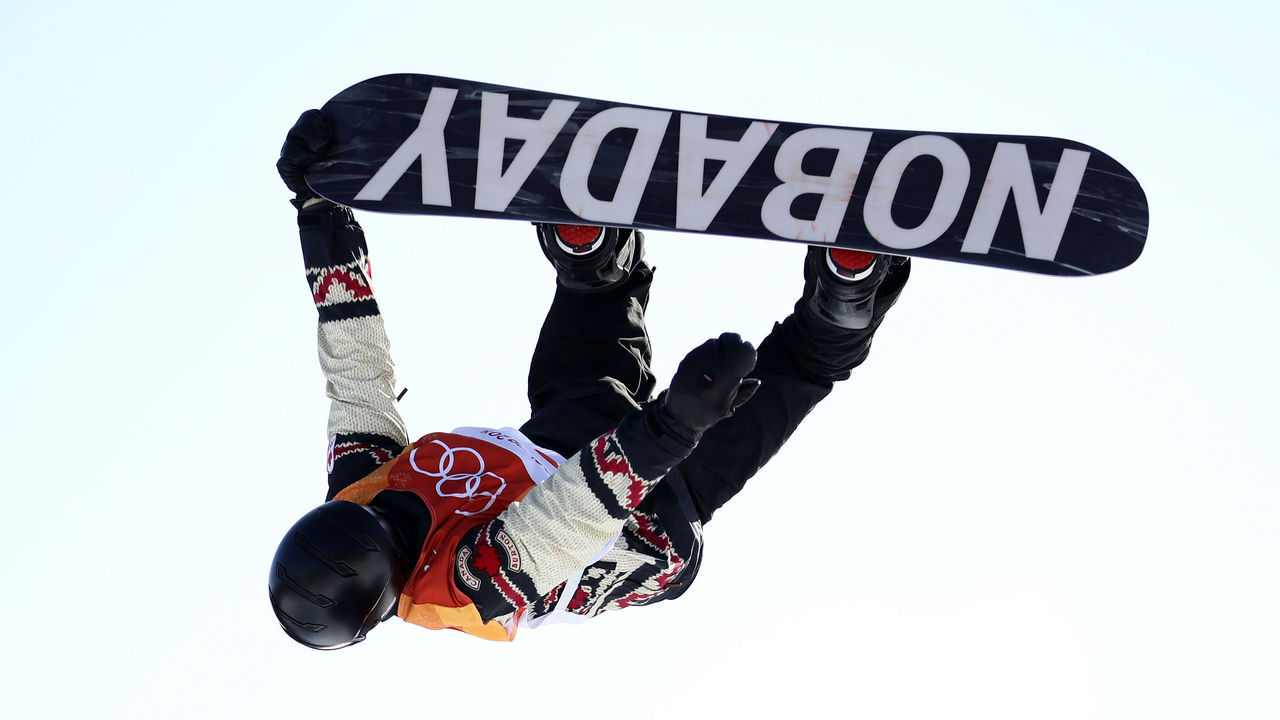
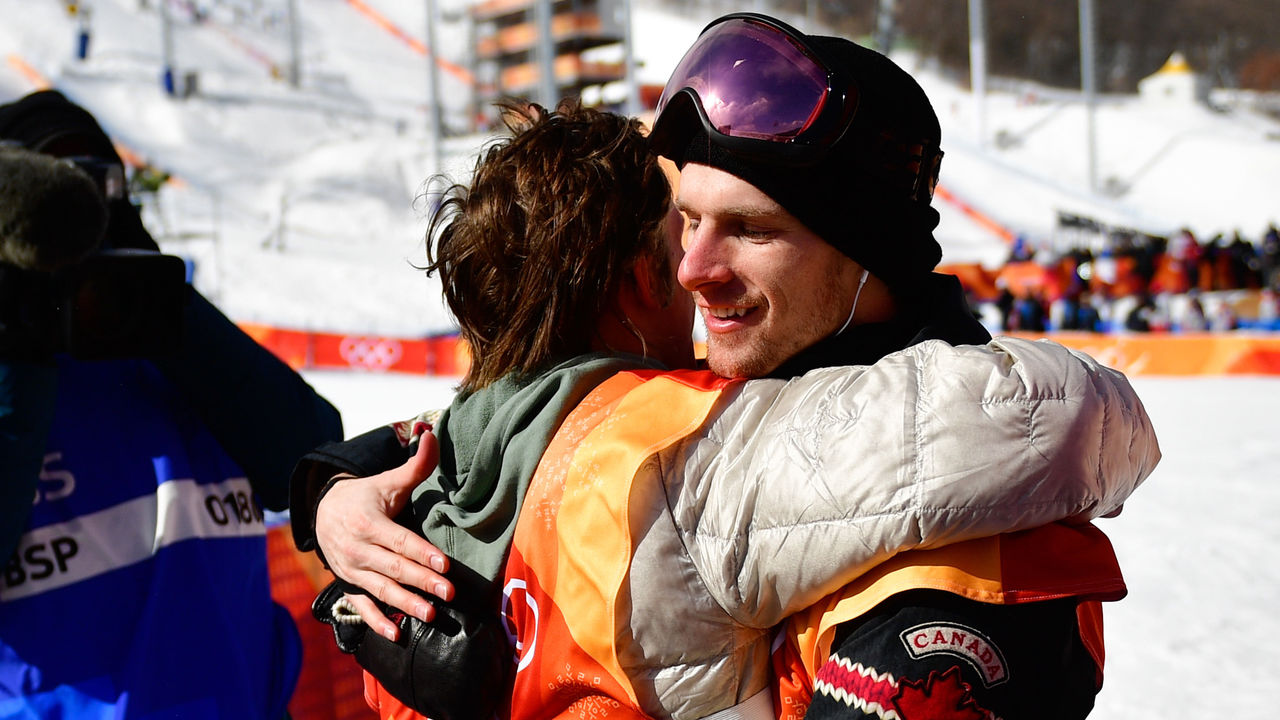
The stakes intensified from there: Parrot survived cancer between Olympic appearances. Diagnosed with lymphoma late in 2018, he endured a dozen rounds of chemotherapy in six months and dealt with nausea, exhaustion, and competition withdrawal as he rebounded to full health. Two months after his last treatment in 2019, Parrot stood atop an X Games podium.
He could join rare company at Beijing 2022. Only two Canadian snowboarders have won multiple Olympic medals: Parrot's teammate Mark McMorris and the retired snowboardcross racer Dominique Maltais. Parrot, McMorris, Sebastien Toutant, and Laurie Blouin all medaled for Canada four years ago in big air or slopestyle. All of them are in China this month, itching to repeat.
Parrot is 27 now, and this Olympic quadrennial changed him. Cancer spurred him to ask "a million questions" about how he lives. He resolved to make more time for himself; he says no to insignificant obligations; being present and appreciating the journey became urgent goals.
"I used to put so much pressure on myself to always deliver the best and win everything," Parrot said in an interview before he flew to Beijing.
"I still have that same pressure. But I put it on my shoulders easily. Every time I strap on my snowboard now, I'm smiling."
Parrot is a smooth, disciplined rider who refines his technique year-round on dry land, using trampolines and airbags. McMorris has described Parrot's style as gymnastic, and as Olympics.com put it in January, he's become reputed in snowboarding "for pushing the limits of what is believed to be possible." Parrot was the first rider to land several different triple and quad rotations. Take a look at this backflip he debuted in Aspen, Colorado, at the 2017 X Games.
Parrot's inventiveness and nerve have helped him excel in both of his events. Big air is as it sounds - snowboarders elevate to perform one eye-popping trick - while slopestyle riders scale jumps and shred rails as they're judged on execution, difficulty, style, and flow. Between big air and slopestyle, Parrot has won 13 X Games medals - five of them since beating cancer.
Late in 2018, Parrot felt a lump on the side of his throat he assumed portended a cold. It was Hodgkin's lymphoma, the blood cancer that afflicts about 900 people in Canada each year. Between January and June 2019, chemotherapy every two weeks sapped his stamina and tested his spirit. He felt dejected and caged, unable to snowboard for longer than a couple of runs. At points, he didn't want to battle anymore.
That spring, organizers invited Parrot to the next X Games to be held in Norway at the end of August. His treatment ended two months earlier. He computed what returning to competition shape would demand.
"Let's say my comfort zone was 80% (of my capacity). I'll go 90% every day for two months," Parrot said. "Seven days a week I'd be training, and seven days a week I'd be pushing myself at the maximum I could."
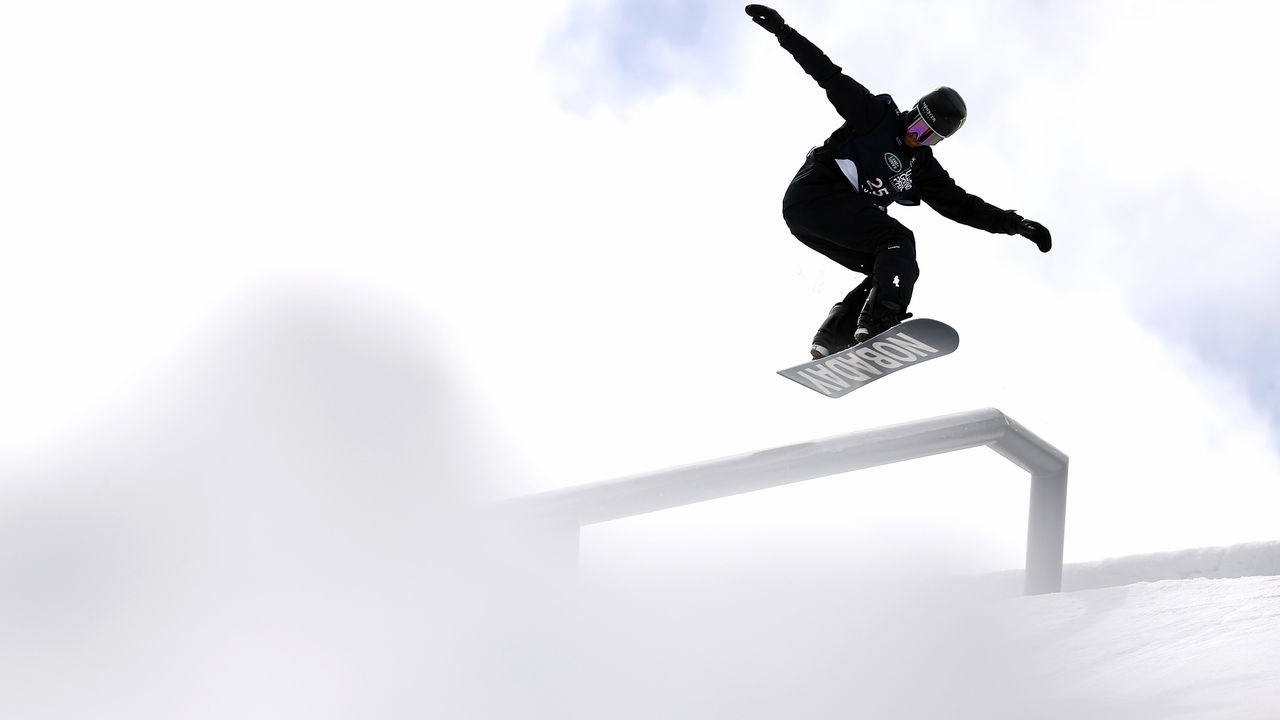
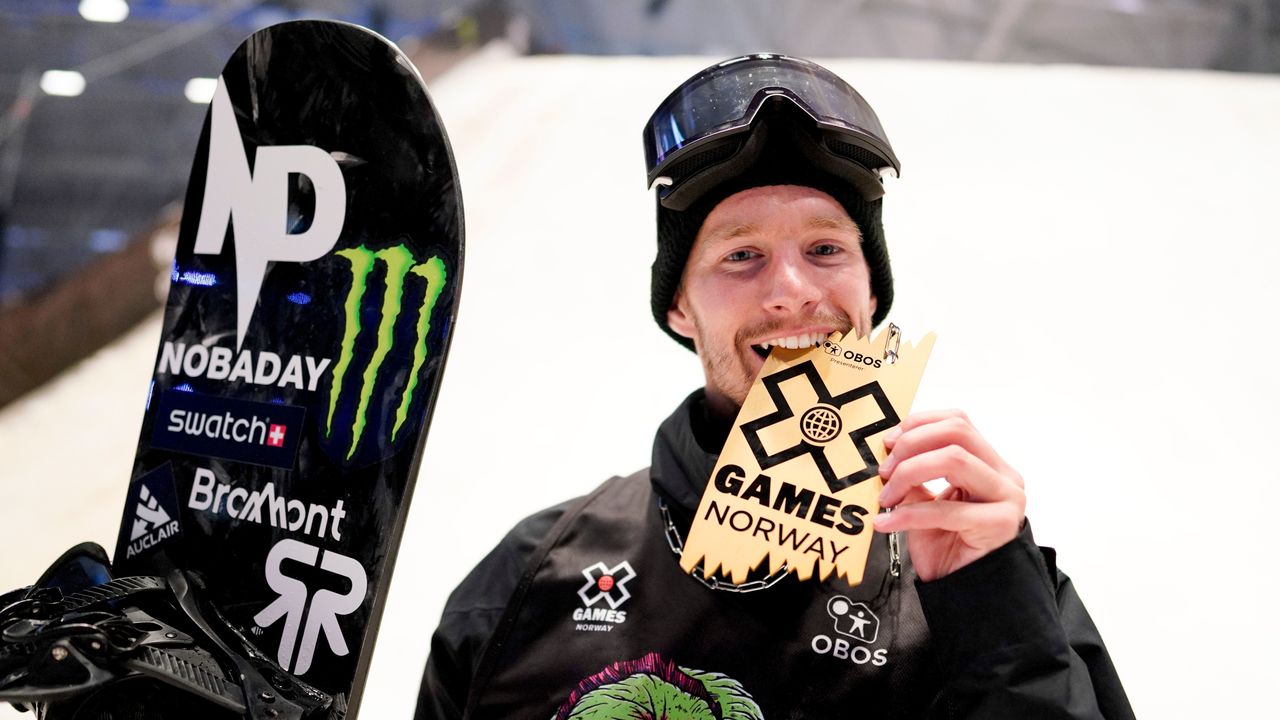
In Norway, Parrot nailed back-to-back triple cork jumps to win gold in big air. The storybook result - and his journey - moved people. Last spring, the Laureus World Sports Awards named him the comeback athlete of the year, honoring Parrot alongside sportsman of the year Rafael Nadal and top sportswoman Naomi Osaka. This past fall, Quebec's legislature gave him a medal for courage and resilience.
"I've had messages from people with cancer telling me that they wouldn't have gotten to the end without my story," Parrot said. "It touched me straight to the heart."
Like everyone, the pandemic forced Parrot to adapt. In 2021, he snared silver in big air at the world championships - McMorris edged him by a point - but missed the X Games in Aspen because of a positive COVID-19 test.
To prioritize training and limit his exposure to the virus, Parrot traveled sparingly this season, scoring silver in big air at January's X Games in Aspen during one of his few Olympic tuneup contests. Dramatically, he landed a triple cork 1800 on his final jump to rise from third place to second. Broadcast analyst Craig McMorris - Mark's brother - called the run poetic, comparing Parrot's smooth touchdown to a butterfly settling on a branch.
That Parrot likes to innovate raises a strategic question: do you stick with what you know on the Olympic stage, or try something new and ambitious?
"It depends, honestly," Parrot said, citing factors like the wind, the size of the jump, the opposition that's present, his gut feel. Judges reward originality but deduct points when a hand grazes the ground. Top riders have a game plan and the confidence to audible when they get to the event.
"I remember winning a lot of contests with tricks I learned in the practice (the day before)," Parrot said. "And I remember winning a lot of contests with tricks I've been performing for years."
Parrot's Olympic competition is fierce, and his Canadian teammates have weathered adversity, too.
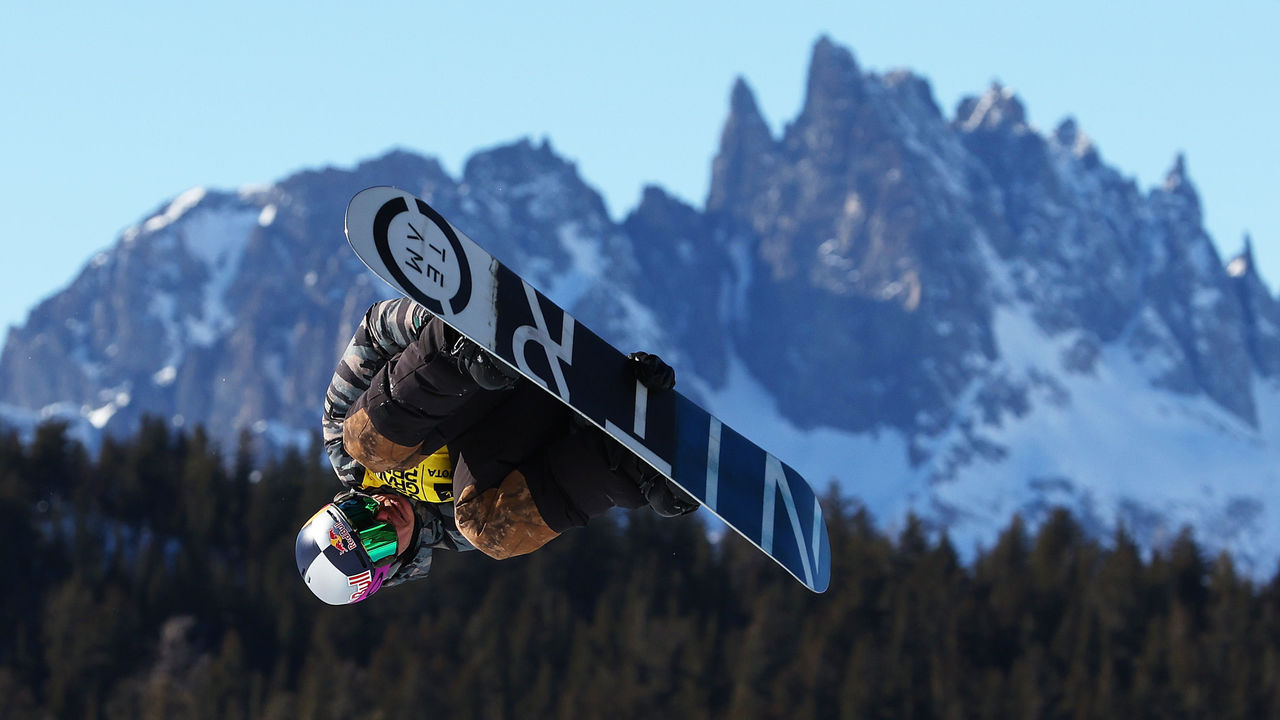
Toutant, who fought through a back injury to win big-air gold in PyeongChang, leads the slopestyle rankings on this season's World Cup circuit. McMorris, the slopestyle winner at the recent X Games, is five years removed from a near-fatal crash into a tree in the British Columbia backcountry. If he medals in Beijing he'll surpass Maltais to become Canada's most decorated Olympic snowboarder.
Americans have won 31 Olympic snowboarding medals, dwarfing second-place Switzerland's 13 and Canada's 11. Ohio native Red Gerard, 2018's slopestyle champion, returns to the Games alongside teammate Chris Corning, the Coloradan who placed fourth in big air. Meanwhile, three-star Europeans - Norway's Marcus Kleveland, Finland's Rene Rinnekangas, and Sweden's Sven Thorgren - all medaled in Aspen last month.
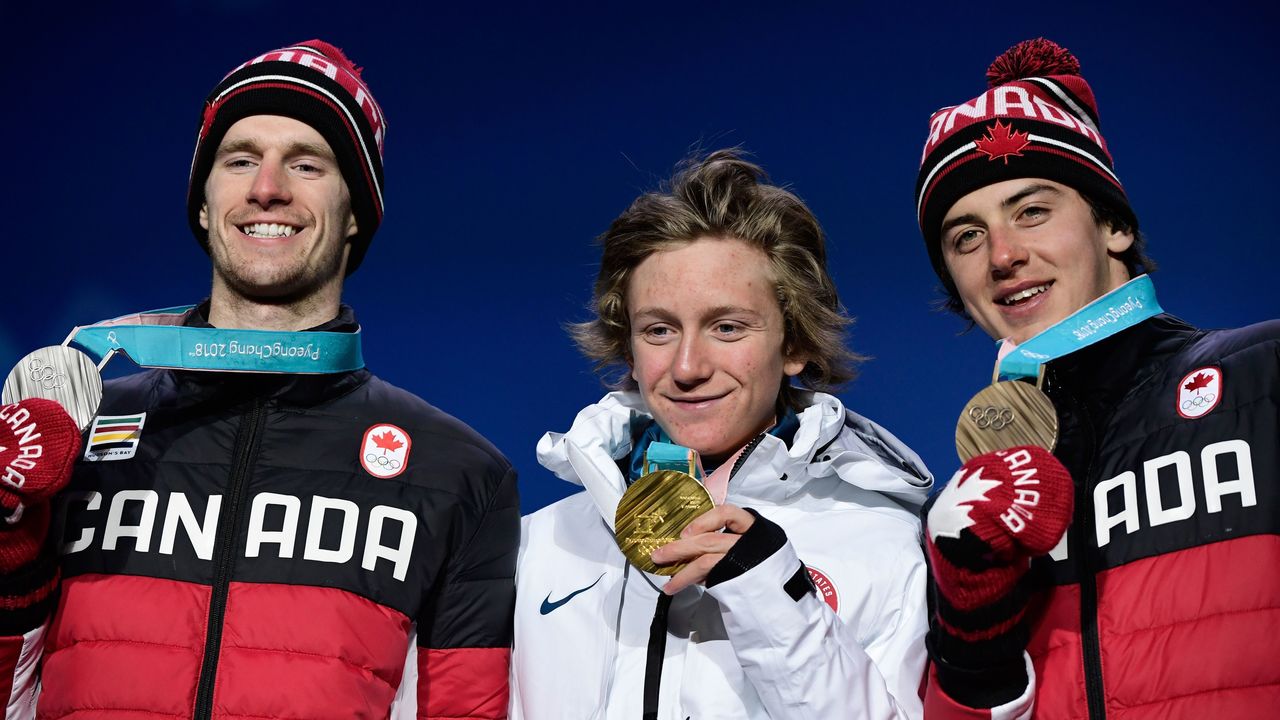
Snowboard courses with massive jumps are scarce, and these rivals tend to cross paths wherever they exist. Parrot is excited to see each of his opponents in China. Long ago he asked himself: why make enemies of people who love what he does?
"I remember in Sochi," Parrot said. "I remember in PyeongChang, I remember at every X Games event, all the guys from every country, when you're about to drop, come to see you and give you a tap: 'Let's go, Max! You can do it!'
"We all cheer for one another, for the reason that we don't want our sport to become serious," he said. "Snowboarding is for fun. That's the reason everyone started it at first."
Nick Faris is a features writer at theScore.